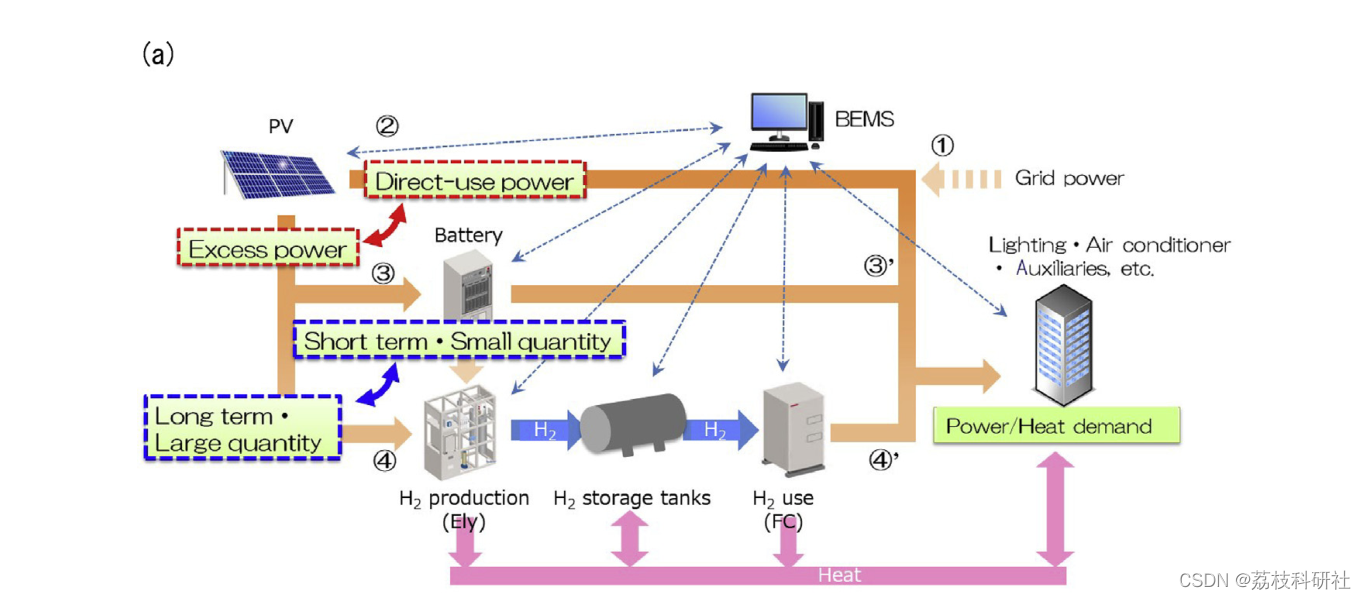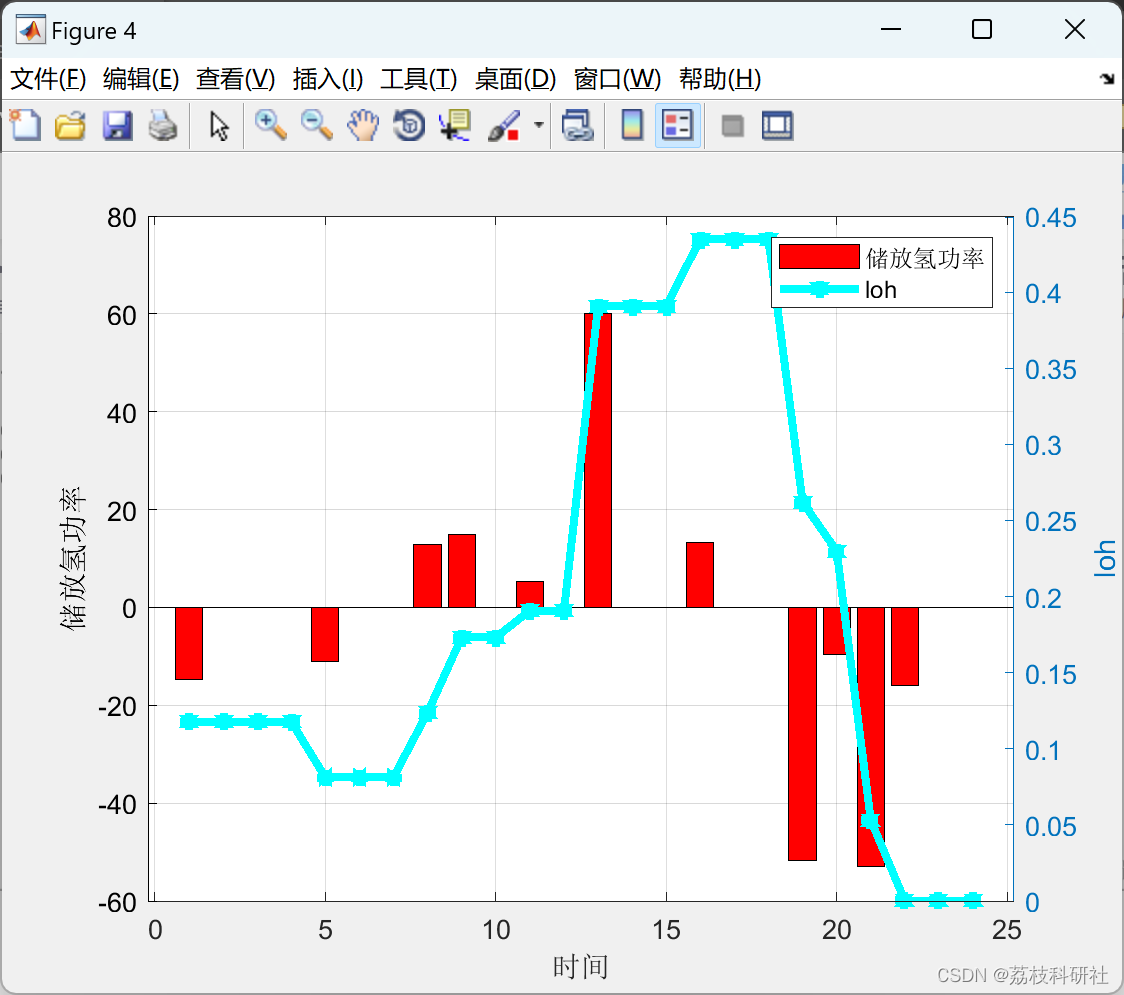计及氢能的综合能源优化调度研究(Matlab代码实现)
💥💥💞💞欢迎来到本博客❤️❤️💥💥
🏆博主优势:🌞🌞🌞博客内容尽量做到思维缜密,逻辑清晰,为了方便读者。
⛳️座右铭:行百里者,半于九十。
📋📋📋本文目录如下:🎁🎁🎁
目录
💥1 概述
📚2 运行结果
🎉3 参考文献
🌈4 Matlab代码实现
💥1 概述
文献来源:

在日本,近40%的温室气体(GHGs)是由建筑物的能源消耗排放的,为了应对全球变暖,日本应该减少温室气体排放。为实现零排放建筑(ZEB),利用MATLAB仿真设计了可再生能源氢能利用系统,包括产氢电解槽、储氢罐、燃料电池和短期储能电池,预计规格分别为3.0 Nm3/h、36 Nm3、4.2 kW和10 kW/17 kWh。我们确定了一个小型低层建筑(总建筑面积约1000平方米,需求约5千瓦)作为规划的ZEB,以建设和运营一个试验规模的系统。选择了一个20kw光伏(PV)系统作为稀土源。通过模拟晴天和阴天48小时的运行,评估了两种制氢工艺(恒定功率为10kw或有多余光伏功率),前者显示出更高的效率。在晴朗天气下,计算结果与实际运行结果吻合较好,验证了仿真模型的正确性。此外,常数情况适合于实际应用。
原文摘要:
Nearly 40% of the total greenhouse gases (GHGs) are emitted from the energy consumption in buildings in Japan, which should be reduced to address global warming. A hydrogen energy utilization system with renewable energy (RE) was designed by MATLAB simulations for realizing a zero emission building (ZEB), comprising a hydrogen-producing electrolyzer, a hydrogen storage tank, fuel cell, and battery for short-term power storage
with estimated specifications of 3.0 Nm3/h, 36 Nm3, 4.2 kW, and 10 kW/17 kWh, respec-
tively. We identified a small low-rise building (total floor area: ~1000 m2, demand: ~5 kW) as the planned ZEB to construct and operate a bench-scale system. A 20-kW photovoltaic (PV) system was selected as the RE source. Two hydrogen production processes (constant power of 10 kW or with excess PV power) were evaluated by simulating 48-h operations on fine and cloudy days, where the former showed higher efficiency. The results with excess
power on a fine day agreed well with that of actual operation, validating our simulation
models. Further, the constant case was suitable for practical application
通过对光伏发电量和建筑能源需求的预测,进行优化计算,确定运行时间和持续时间,以及系统各部件的运行功率。因此,该建筑的需求概况被编制。
根据实际测量值设置逆变器损耗为10%,电池充放电效率为88%。储氢量计算为5.0 kWh/Nm3-H2 (Ely)和1.0 kWh/0.606 Nm3-H2


📚2 运行结果





🎉3 参考文献
部分理论来源于网络,如有侵权请联系删除。


